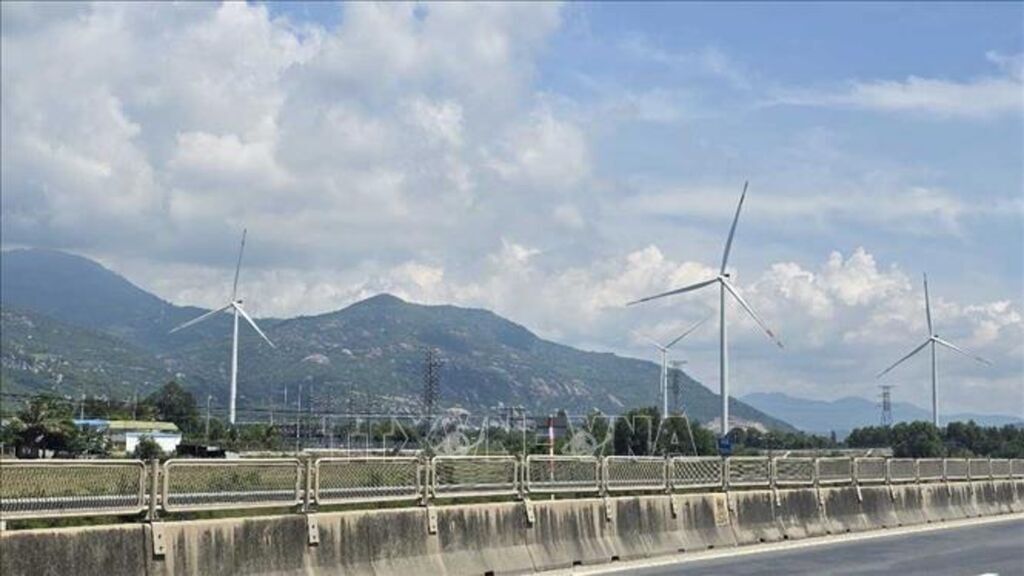 |
| The wind farms in Thuan Bac commune contribute to making Khanh Hoa province one of the national energy centers__Photo: Dang Tuan/VNA |
By 2030, Vietnam aims to achieve a total primary energy supply of between 150-170 million tons of oil equivalent, a total ultimate energy consumption of between 120-130 million tons of oil equivalent, an energy saving-on-total consumption rate of 8-10 percent and a 15-35 percent reduction in greenhouse gas emissions compared to the business-as-usual scenario.
These objectives are set in the action program to realize Politburo Resolution 70-NQ/TW dated August 20, 2025, on assurance of the national energy security through 2030, with a vision toward 2045, which was promulgated together with Government Resolution 328/NQ-CP dated October 13, 2025.
To develop energy supply and infrastructure, the Government directs ministries, ministerial-level and government-attached agencies, provincial-level People’s Committees and energy enterprises to formulate specific scenarios and roadmaps to ensure energy security for economic growth up to 2030, with a vision toward 2045, diversifying energy supply sources, prioritizing domestic energy development and reducing import dependence.
The action program also outlines the necessity to build national energy industry centers for gas, liquefied natural gas, electricity, refined oil and renewable energy in localities with competitive advantages in sync with policies on resource extraction, offtake agreements and domestic natural gas pricing mechanisms.
Regarding energy saving, environmental protection, and the implementation of international commitments on emission reduction, the Government also sets mandatory energy-saving targets for each sector, industry or locality. Inefficient, high-emission equipment, machinery and vehicles will be gradually phased out while enterprises are encouraged to invest in advanced and energy-efficient technologies. The Government will impose carbon tax on fossil fuel consumption and set carbon emission standards and limits so as to reduce greenhouse gas emissions in the energy sector.
With respect to making breakthroughs in science, technology, innovation and digital transformation and human resource training in the energy sector, the Government assigns ministries and local authorities to allocate at least 2 percent of the energy sector’s GDP for research and development. Under the action program, training will be provided to 25,000-35,000 engineers and experts in the energy sector, focusing on nuclear energy industry.
Policies will also be introduced to attract foreign experts and overseas Vietnamese professionals to return to the country to contribute to nuclear energy, renewable energy and new energy.- (VLLF)









